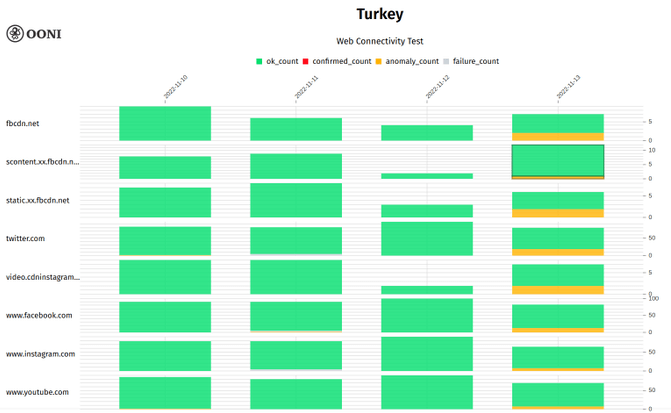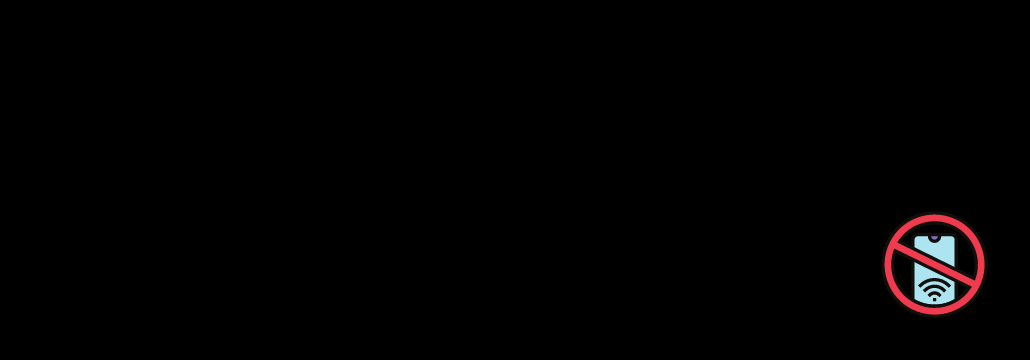Contents:
What happened in Turkey, on November 13th?
On Sunday, November 13th, reports of a bomb blast on Istanbul’s busy Istiklal street began circulating on social media platforms.
The explosion, which has now been labeled a terrorist attack, is said to have occurred around 4:20 PM near Taksim Square, killing at least eight people and injuring 81 others.
Following the deadly explosion in Taksim, network data confirms the restriction of social media platforms, such as Instagram, Facebook, Twitter, and Telegram. Folks could not access social media apps other than WhatsApp, limiting the flow of updates and information about the incident.
The measure was implemented as Turkey’s Radio, and Television Supreme Council (RTUK) regulatory authority announced a ten-hour media ban on the topic of the explosion. However, by early Monday morning, service had been largely restored.
But let’s get to the root of this nationwide broadcast ban!
An Insight Into the Attack
Turkey has a long history of restricting access to social media platforms in the aftermath of explosions, political incidents, and terror attacks. However, the policy has been criticized for limiting access to support and assistance and restricting press freedom in times of emergency.
Following the tragic incident that sent shivers down everyone’s spines, Turkish residents were met with another unexpected occurrence: a broadcast ban imposed by Turkey’s Radio and Television Supreme Council (RTÜK) that discouraged the spread of information linked to the attack.
Turkish ISPs have begun throttling access to social media platforms such as Instagram, Facebook, Twitter, YouTube, and Telegram.
After analyzing network traffic, NetBlocks confirmed that a nationwide social media restriction was in effect.
The Open Observatory of Network Interference (OONI) also confirmed the internet throttling:

“Real-time NetBlocks metrics show that social media and communication platforms Twitter, Instagram, Facebook, YouTube, and some Telegram servers have been restricted since Sunday afternoon,” NetBlocks stated.
The measure was initially implemented on Turk Telekom, the leading network operator, and was later expanded to cover the majority of internet providers. Metrics are collected from an initial set of 50 vantage points across the country, correlating with user reports of service outages.
Authorities have also opened an investigation into 25 social media accounts for allegedly posting provocative content, inciting fear and panic, and inciting hatred and enmity. In addition, this past October, Turkish lawmakers approved a new disinformation bill.
Social Media Law Voiced Concern Regarding Freedom of Speech
Turkey’s “disinformation” law, proposed by President Erdogan’s ruling AK Party, went into effect last month. The controversial law penalizes social media users and journalists for spreading “fake news.” In Turkey, anyone found guilty of spreading false information to “create fear and disturb public order” faces up to three years in prison.
Exiled Turkish journalist Sevgi Akarcesme told CNBC in October
“The goal of this new law is to control social media because Erdogan already controls conventional media.”
Muharrem Ince, a Turkish politician, also tweeted:
Türkiye’ye en büyük zararı; insanların can güvenliğini sağlamak yerine #patlama haberine aceleyle yayın yasağı getiren, interneti yavaşlatan bu hastalıklı zihniyet veriyor! #taksim
— Muharrem İNCE (@vekilince) November 13, 2022
“The biggest damage to Turkey; instead of ensuring the safety of people’s lives, this sick mentality hastily imposes a broadcast ban on the news of the explosion and slows down the internet.”
Conclusion
According to Ozgur Ogret, a Committee to Protect Journalists (CPJ) representative, the law affects anyone with “the ability to speak, read, and write” and can lead to self-censorship. However, this type of disruption can be avoided by using VPN services, which can bypass government internet censorship.
If you liked this article, follow us on LinkedIn, Twitter, Facebook, Youtube, and Instagram for more cybersecurity news and topics.


 Network Security
Network Security
 Vulnerability Management
Vulnerability Management
 Privileged Access Management
Privileged Access Management
 Endpoint Security
Endpoint Security
 Threat Hunting
Threat Hunting
 Unified Endpoint Management
Unified Endpoint Management
 Email & Collaboration Security
Email & Collaboration Security










